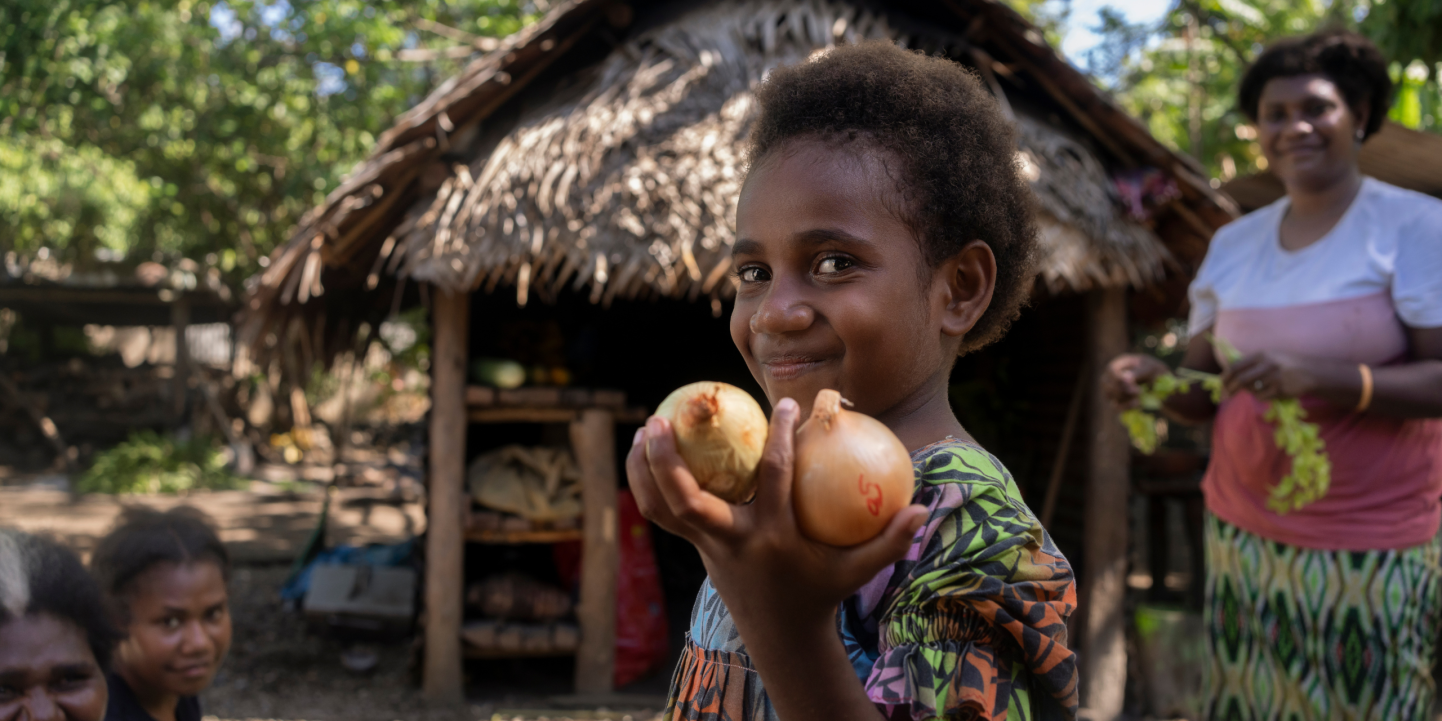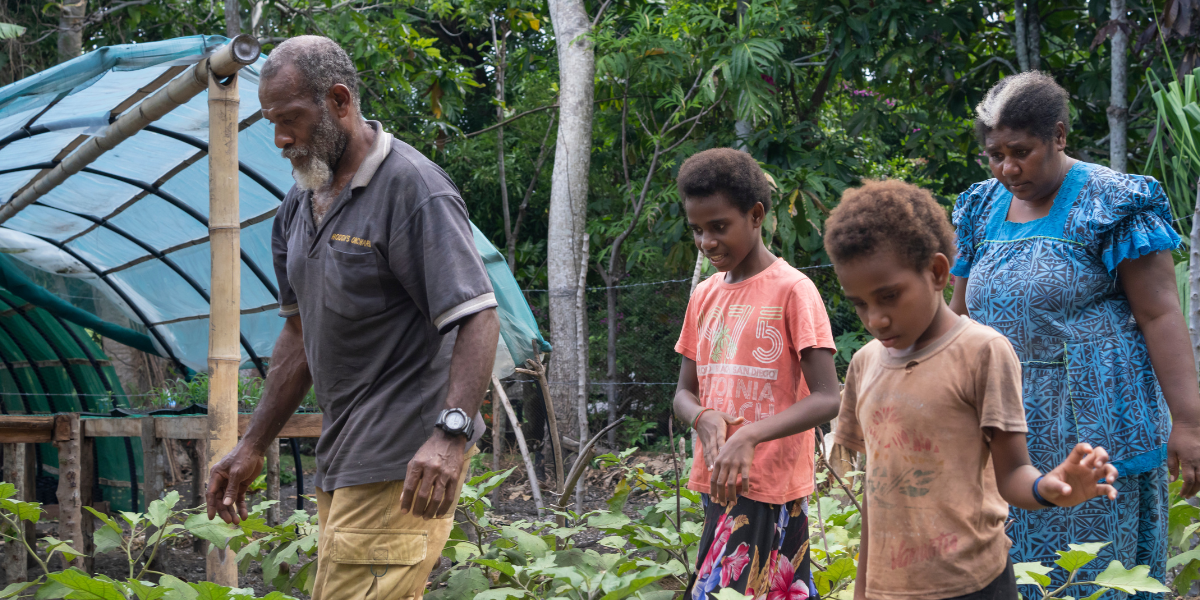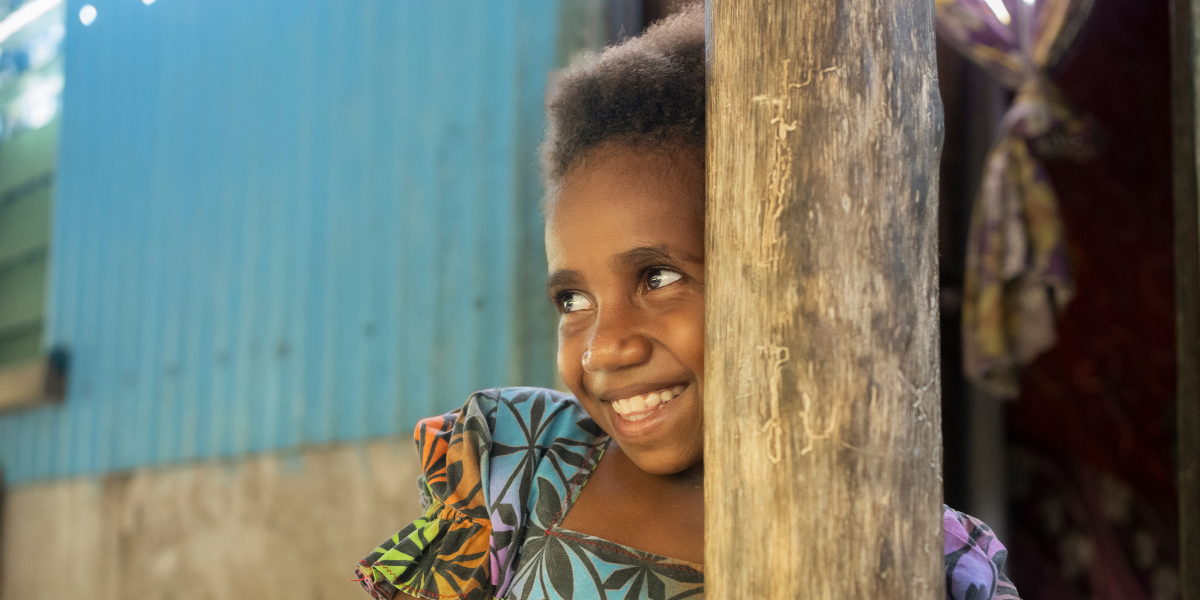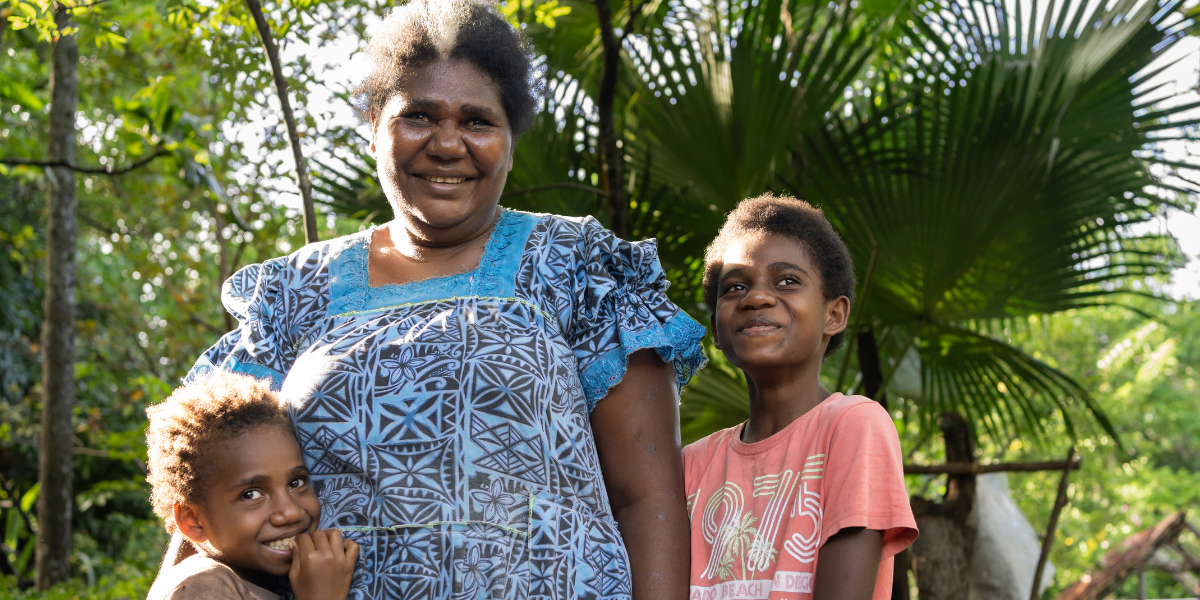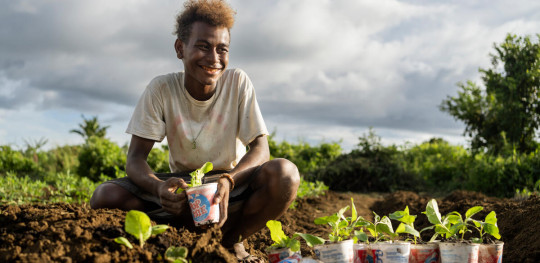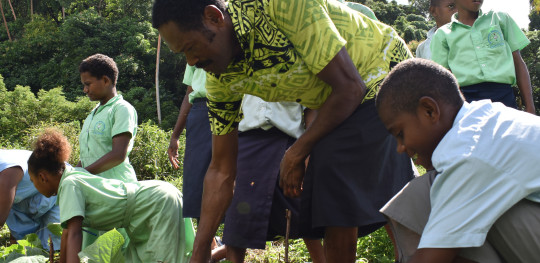Seeds of Strength: Building Climate-Smart Livelihoods Across the Pacific
Across the Pacific, climate change is already transforming daily life. Rising sea levels, stronger winds, and prolonged droughts are threatening homes, crops, and livelihoods. For many children, this means food shortages, disrupted schooling, and increased risk of illness.
At Save the Children New Zealand, we believe every child deserves not only to survive these challenges but to thrive despite them. That’s why our livelihoods and climate-resilience programmes focus on helping communities adapt, by strengthening food security, protecting income, and safeguarding children’s wellbeing.
Building resilience before disaster strikes
Rather than waiting for the next cyclone to hit, our teams and local partners across the Pacific are helping communities prepare and adapt.
Climate-resilient gardens and seed banks
Working alongside the Vanuatu Ministry of Agriculture, Save the Children has helped establish a network of community nurseries that can be collapsed and stored when a cyclone is predicted, then rebuilt afterwards. These nurseries protect young seedlings and fruit trees, allowing families to replant quickly once it’s safe.
A seed bank now provides access to climate-resistant crops, including new shorter fruit-tree varieties that are less likely to fall in strong winds. Since the programme began, over 9,000 seed packets have been distributed to more than 1,100 households, reaching 8,000 people across 28 communities.
Training and community leadership
Farmers and parents are trained in climate-smart agriculture, techniques like soil management, composting, grafting and crop diversification. Local leaders share their learning with neighbours, ensuring the knowledge stays within the community and continues to grow.
“We learnt how different crops can withstand cyclones and how to protect and replant them. It’s knowledge that helps us feed our children,” says Apia, a community leader in Vanuatu.
Rapid response and child protection
When disasters do strike, Save the Children responds immediately. Following the twin cyclones in 2023 and the earthquake in 2024, we established Child-Friendly Spaces so children could play, learn, and feel safe while their communities rebuilt.
These spaces provide psychosocial support and a sense of stability that protects children’s wellbeing during emergencies.
Real change, for real families
Seven-year-old Agnes, who lives on one of Vanuatu’s small islands, remembers hiding with her siblings as winds shook the house and trees crashed outside during back-to-back cyclones in 2023. Afterwards, there was little food left, until her community began planting again with the new seeds provided through the livelihoods programme.
“We planted corn, eggplant, tomato, round cabbage and Chinese cabbage. I like cabbage and banana. They make you strong.” - Agnes
Stories like Agnes’s are becoming more common across the Pacific, but so are stories of resilience. Each new garden planted, each training session delivered, and each seed stored safely is a step toward a more secure future for children.
Why this work matters
The Pacific is one of the most climate-vulnerable regions in the world. Extreme weather threatens not only the environment, but also food supplies, education, and children’s long-term health.
By focusing on resilient livelihoods, Save the Children helps families grow nutritious food, recover their income, and prepare for future challenges. This approach reduces the need for emergency aid and builds lasting independence within communities.
You can help communities prepare, adapt and thrive
When you support Save the Children’s livelihoods and climate-resilience work, you help families:
- Grow nutritious food even after disaster
- Restore their income and independence
- Keep children healthy, fed and in school
Your generosity helps turn climate vulnerability into community strength.


